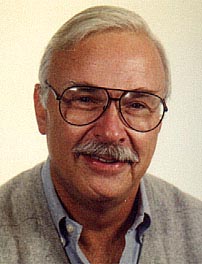Citizenship
and
War with Iraq

By
Burns
H. Weston
Professor of International Law
Emeritus of The University of Iowa College of Law and
Director of The University of Iowa Center for Human
Rights.
TFF
associate
March 12, 2003
As citizens of a democracy, it is our duty to ensure
the lawful behavior of our federal, state, and local
governments. And to this end, let us be very clear.
Whether wise or unwise, a US-led war against Iraq without
the approval of the UN Security Council and without
convincing evidence of an immediate threat to the
territory and people of the United States would be
unlawful.
It would be unlawful as breach of our solemn
obligations under the UN Charter, a treaty to which the
United States is a party and the closest thing we have to
a world constitution. We dare not forget former President
Ronald Reagan's indictment of the Soviet Union as "an
evil empire" not least because, he said, it could not be
trusted to uphold its Charter commitments and other
treaty promises.
Because it would constitute a breach of our treaty
commitments, a US-led war against Iraq without the
approval of the UN Security Council and without
convincing evidence of an immediate threat to the
territory and people of the United States would be
unlawful also as a violation of Article VI of the US
Constitution which proclaims "all Treaties made under the
Authority of the United States" to be part of "the
supreme Law of the Land." It also would imperil Article
1(8) of the US Constitution which empowers Congress and
Congress alone to declare war. This is the stuff of "high
crimes and misdemeanors" for which a proper remedy is
impeachment.
Indeed, absent convincing evidence of an immediate
threat to the territory and people of the United States
that would justify our country's "inherent right to
individual and collective self-defense" under UN Charter
Article 51, a US war against Iraq without the approval of
the UN Security Council would constitute a war of
aggression and therefore a "war crime" as defined at
Nuremberg following World War II and by the 1949 Geneva
conventions and subsequent protocols on the laws of war.
This is the stuff of war crimes tribunals for which the
architects and to large extent also the executors of such
a war can in theory be held accountable as "war
criminals."
To date, the Bush Administration has convinced neither
the UN Security Council nor a majority of the American
people nor the international community in general that
the threat posed by Iraq to the United States constitutes
a clear and present danger that immediately threatens the
people and security of the United States. The motives
behind the rush to war in Iraq, they rightly suspect,
have more to due with hegemony than they have to do with
weapons of mass destruction, terrorism, or the promotion
of human rights. Also, they look askance at the bribes,
economic threats, and telecommunication tamperings that
Washington is indulging to win Security Council support
of its Iraq policy, rightly perceiving them to be
violations of the very democratic principles the United
States espouses.
As citizens of a democracy, our duty is thus clear. We
must condemn the villainy of the Iraqi leadership and
work to exhaust all peaceful means for bringing them to
account. Of course. But we, the people, must also oppose
our government's headstrong and essentially unilateralist
rush to war with Iraq because, as appears likely, it will
constitute a war crime. Additionally, it will establish a
frightening precedent that can be used by others with
devastating consequences for the entire world community,
from the most global to the most local. For each of these
reasons and more, it is our duty to engage in persuasive
discourse and, if necessary, non-violent resistance.
We Americans remain woefully in the grip of a history
of manifest destiny and rugged frontier individualism. It
is an ethos that goes very deep. Now aided and abetted by
evangelistic fervor, it could well be our-and the
world's-undoing. As Yeats once cautioned, even the best
of us live by candlelight.
©
TFF & the author 2003

Tell a friend about this article
Send to:
From:
Message and your name
|